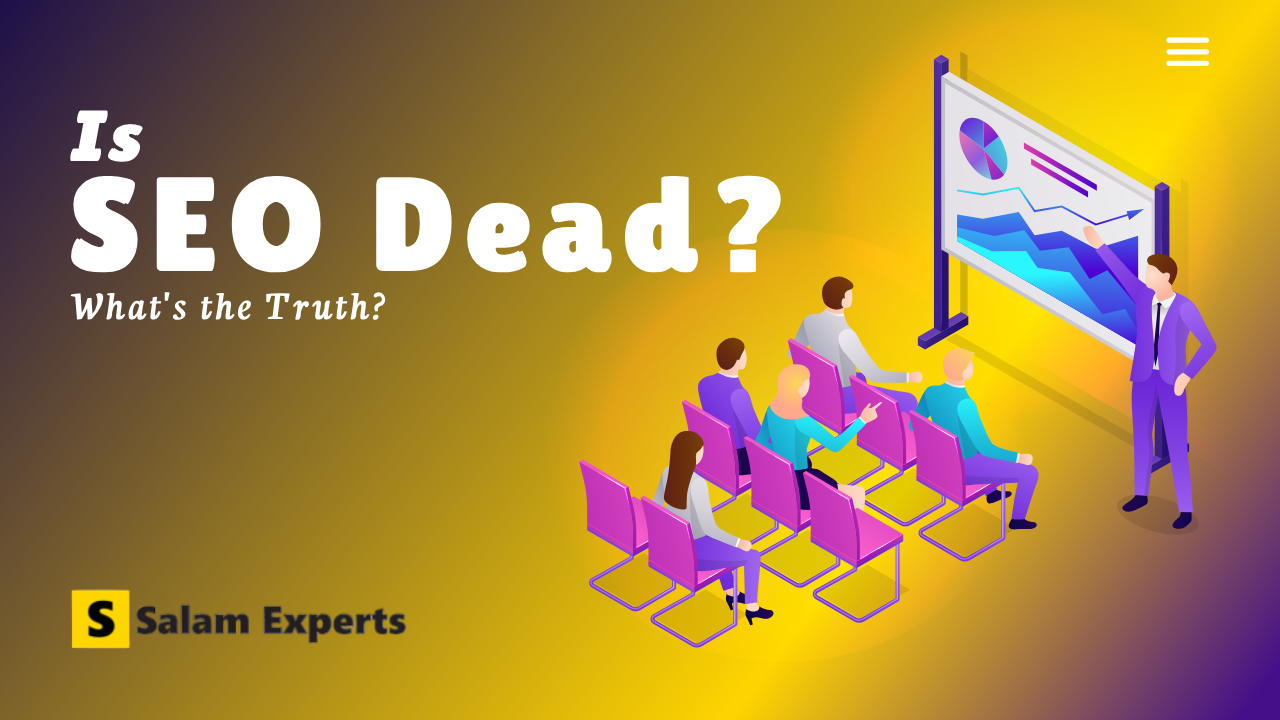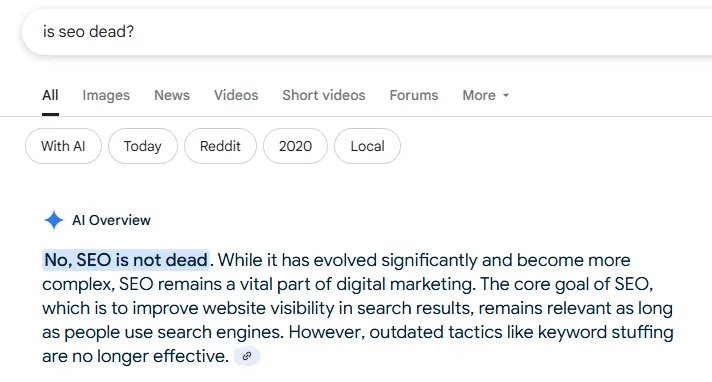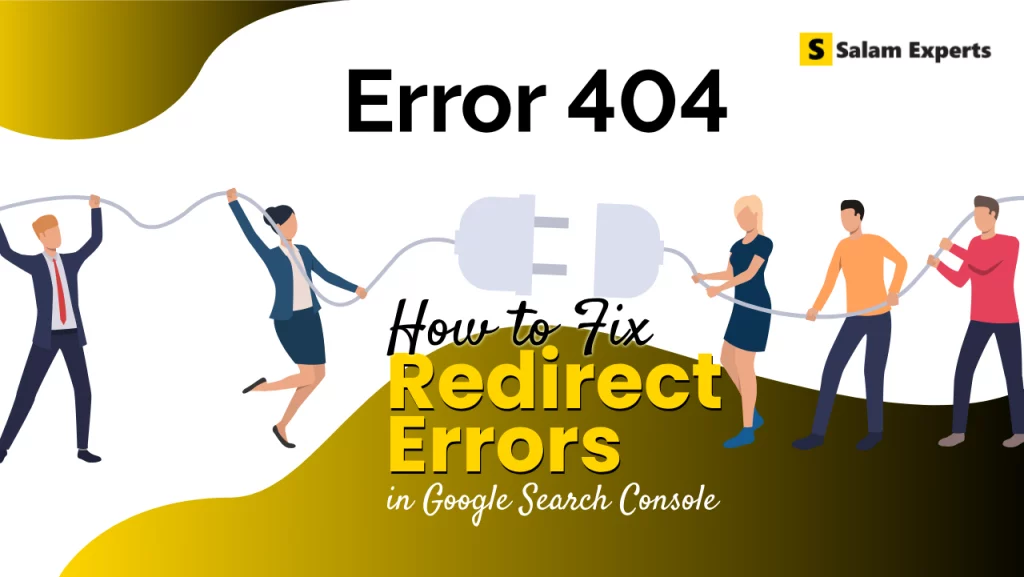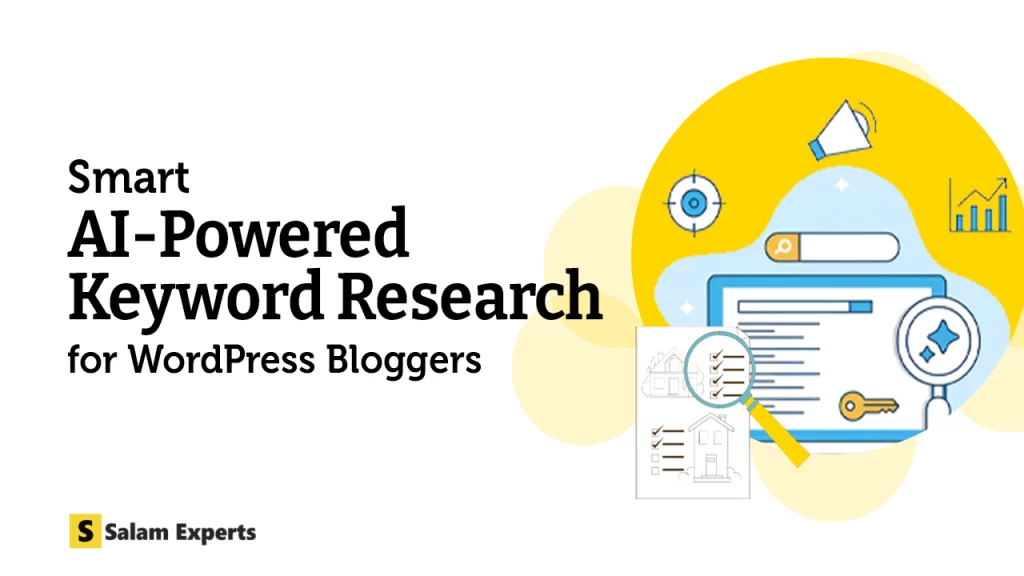Is SEO Dead in 2025? What’s the Truth?

Are you tired of constantly hearing the buzz that “SEO is dead”? It seems like every year, someone rings the alarm, claiming that search engine optimization has lost its relevance. In 2025, the noise is louder than ever, especially with AI-generated content saturating the internet. It’s no wonder people are questioning whether SEO still has a place in the modern digital marketing toolbox. But the reality is far more nuanced and far more exciting. Here’s the truth: SEO is not dead; it’s evolving.
In this blog, we’ll explore why SEO remains a critical part of digital success and how you can adapt to the new landscape to stay ahead.
How SEO Is Not Dead—But Evolving in this AI Era
If you’ve heard that SEO is a thing of the past, it’s time to rethink that idea. SEO hasn’t died—it has evolved dramatically to keep up with changes in technology, user behavior, and how search engines process information. In fact, the principles of SEO are more relevant than ever, just not in the same way they were a decade ago.
Here’s how SEO is evolving, not disappearing:
- From Keyword Stuffing to Intent-Based Content: In the early 2000s, SEO was largely about repeating keywords and gaming the system. Today, search engines like Google focus on user intent. That means your content must answer the actual questions people are asking, in a natural, helpful way. It's not about how many times you use a keyword, it's about whether your content satisfies the searcher..
- From Backlink Quantity to Topical Authority: It used to be all about building hundreds of backlinks from wherever you could get them. Now, SEO is about earning relevant, high-quality links and building topical authority, meaning your site should thoroughly cover a subject area and become a go-to resource. Quality > quantity in today’s ranking game..
- From Desktop Optimization to Mobile-First Indexing: Most web traffic now comes from mobile devices, and Google knows it. That’s why they use mobile-first indexing, meaning your site’s mobile version is the one that matters most for rankings. If your site isn’t responsive, fast, and easy to use on smartphones, you’re already falling behind
It’s crucial to make your site mobile-friendly so consider exploring ways to make your site mobile responsive.
- From Basic On-Page Fixes to Core Web Vitals:Today’s SEO is technical. Google doesn’t just want your site to be informative—it wants it to load fast, be interactive, and provide a smooth visual experience. This is why Core Web Vitals are now ranking signals. Things like Largest Contentful Paint (LCP) and Cumulative Layout Shift (CLS) directly impact how your pages rank..
- From Search Engine Optimization to Experience Optimization: The biggest shift? SEO isn’t just about optimizing for search engines anymore. It’s about optimizing for people. User experience (UX), content design, visual appeal, accessibility, and even content tone play a role in how long someone stays on your page and whether they return. Search engines are getting better at detecting content that actually helps users.
- From One-Time Strategy to Ongoing Adaptation: SEO is no longer something you “set and forget.” Algorithms update frequently, competition rises, and search behavior changes. This means SEO has become a continuous process of optimization, monitoring, updating, and improving. The brands winning in 2025 are those that treat SEO as a living, breathing part of their digital marketing strategy.
But Why Do People and Digital Marketers Say SEO Is Dead?
-
AI-Generated Content Is Flooding the Internet: With AI writing tools generating content at scale, the web is flooded with blog posts, product descriptions, and FAQs that often say the same thing. This saturation has created “content fatigue” among both users and search engines. Many marketers believe they can’t compete without publishing hundreds of articles per month, so they assume SEO is no longer viable.
But in truth, quality outweighs quantity.
Google’s algorithms are becoming better at detecting thin, regurgitated content and rewarding genuine human insight, unique data, expert opinions, and personal experience, especially with the emphasis on Google’s E-E-A-T principles.
-
Google’s Constant Algorithm Updates:Frequent algorithm changes make SEO feel like a moving target. Updates like Helpful Content, Core Web Vitals, SpamBrain, and the integration of AI in Google Search (like the Search Generative Experience) can disrupt rankings overnight. This unpredictability leads some marketers to give up, believing SEO is a game rigged against them.
However, these updates aren’t punishments—they’re course corrections. Google is trying to align search results with user satisfaction. If your content is trustworthy, helpful, and technically sound, you’re more future-proof than most.
-
Rise of AI Overviews:

AI-powered search features are increasingly providing users with instant answers directly on the search results page through summaries, chatbots, and generative AI overviews. While this reduces the number of clicks to websites, it also offers new opportunities to gain visibility and build brand authority by appearing in these AI-driven snippets. Optimizing content for AI overviews means focusing on clear, concise, and authoritative information that AI can easily surface to users.
- Outdated SEO Tactics No Longer Work: Some marketers still use 2010 strategies: keyword stuffing, spinning articles, buying low-quality backlinks, or using clickbait meta titles. When these tactics fail in 2025, they blame SEO instead of their approach.
How to Overcome These SEO Challenges
- Prioritize Quality Over Quantity
- Focus on expertise, originality, and value, not just churning out content.
- Incorporate first-hand experiences, original data, and expert insights to stand out from AI-generated noise.
- Align with Google’s E-E-A-T (Experience, Expertise, Authoritativeness, Trustworthiness) to gain long-term credibility.
- Optimize for Zero-Click Opportunities
- Create concise, direct answers for People Also Ask, featured snippets, and AI summaries.
- Use structured data/schema markup to help your content surface in rich results.
- Even without clicks, these placements can boost brand visibility and trust.
- Embrace a Multi-Channel Strategy
- Combine SEO with PPC, email, and social media to dominate more SERP real estate.
- Use retargeting and remarketing for visitors who first see your brand in organic placements.
- Accept that SEO is one part of a larger digital ecosystem, not the only channel.
- Integrate Social & Search
- Repurpose social video content (e.g., YouTube Shorts, TikTok) into blog posts or landing pages.
- Embed social proof and viral snippets in long-form content to engage different audiences.
- Use social listening tools to identify trending topics, then cover them on your website before competitors.
- Modernize Your SEO Practices
- Avoid outdated tactics like keyword stuffing, spun content, or shady backlinks.
- Use natural language and focus on intent-based keywords.
- Ensure on-page elements (title tags, headers, meta descriptions) are clear, helpful, and optimized for real users.
AI and SEO: Will AI Replace SEO?
AI will not replace SEO but transform it. SEO relies on human insight to understand user intent and optimize content and technical factors. While AI can assist with tasks like keyword research and content ideas, it still needs SEO expertise to rank effectively.
Search engines use AI to improve results but continue to depend on traditional SEO signals. In short, AI enhances SEO but cannot replace the strategic and creative work that only humans can do.
Future Outlook: Where Is SEO Headed?
Here’s what we can expect going forward:
- Deeper AI integration (Google’s Search Generative Experience will dominate)
- Hyper-personalized SERPs
- More emphasis on user interaction signals (time on page, satisfaction)
- Increased importance of brand authority and trust
- Stronger penalties for low-quality, AI-spammy content
SEO will increasingly merge with UX design, content strategy, and brand development.
Conclusion
So, does SEO matter anymore? Absolutely. SEO remains a vital part of digital marketing, adapting constantly to technological advances and user behavior changes. Understanding how important SEO is today means recognizing that it’s not just about rankings, but about delivering valuable, user-focused content that builds trust and authority.
FAQs:
Will SEO exist in 5 years?
Yes, SEO will definitely exist in 5 years. It will continue evolving alongside AI and search engine updates, focusing more on user experience and content quality.
How has AI changed SEO strategies?
AI has enhanced SEO by improving content analysis, keyword research, and personalized search results, but human insight remains essential for effective optimization.
Can AI-generated content rank well on Google?
AI-generated content can rank if it meets quality standards, provides unique value, and aligns with Google’s E-E-A-T principles, but thin or repetitive content is penalized.
Is traditional keyword stuffing still effective?
No, keyword stuffing is outdated and can harm rankings. Modern SEO focuses on intent-based keywords and natural language that satisfies user queries.
How can businesses stay ahead in SEO amid constant algorithm changes?
Businesses should prioritize quality content, monitor SEO trends, use reliable SEO tools, and maintain a flexible strategy that adapts to updates.
Does social media impact SEO performance?
While social media doesn’t directly affect rankings, it drives traffic, brand awareness, and engagement that indirectly support SEO success.
Author
-

We are a digital marketing agency with over 17 years of experience and a proven track record of helping businesses succeed. Our expertise spans businesses of all sizes, enabling them to grow their online presence and connect with new customers effectively.
View all posts
In addition to offering services like consulting, SEO, social media marketing, web design, and web development, we pride ourselves on conducting thorough research on top companies and various industries. We compile this research into actionable insights and share it with our readers, providing valuable information in one convenient place rather than requiring them to visit multiple websites.
As a team of passionate and experienced digital marketers, we are committed to helping businesses thrive and empowering our readers with knowledge and strategies for success.






